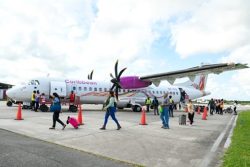Dear Editor,
In the middle of the last century our colonial masters suspended our constitution and appointed an interim government to replace the one we elected. Local elements on the political right were jubilant and supportive of the actions of the colonial overlords. Overall however the national and international response to the forcible removal of our elected government was tremendous. Despite the split in the nationalist movement in the 1950s, the yearning to be a free people remained strong and the desire to become a member of the community of independent nations was firm. Nationalistic fervour continued to be high. Our country became independent in 1966 and since then we have been in charge of our own destiny.
In recalling the temper of those times, I have been struck by the fact – and the irony of it – that it has become commonplace that at the local government level our postcolonial governing directorate has engaged in the practice of disbanding Neighbourhood Democratic Councils (NDCs) which the people elected and imposing Interim Management Committees (IMCs) in the choosing of which the people had no say.
There are however other troubling issues regarding the governance structures and arrangements we employ and which call for reflection and attention. In the wake of the recent shooting to death by the police of unarmed protesters in Linden, Andaiye, Joycelyn Bacchus, Karen de Souza, Joy Marcus, and Alissa Trotz wrote a letter (Stabroek News, July 23, 2012) which alluded to the shooting to death of Enmore sugar workers by the colonial police in1948 and averred that the circumstances carried that struggle to the central issue of “how we organise to live.” Envisaging historical parallels I suspect the authors of the letter concluded that Linden 2012 demanded “that we stand up and answer the question: How will we organise to live.“ How indeed have we been organising to live? Have constructs of rulership utilised been conducive to nurturing a humane rule-based society, one which so many dreamed of and for which so many now long? Looked at another way is there any similarity between governance constructs we have employed as postcolonials and those used on us during colonial times? Take power for example. The colonisers used power to divide and to dominate. Power can however be used differently; it can be used to foster unity and to promote justice and equity.
The real question is can we organise to live more wholesomely? It may be difficult but it is necessary.
Yours faithfully,
Rashleigh E Jackson





